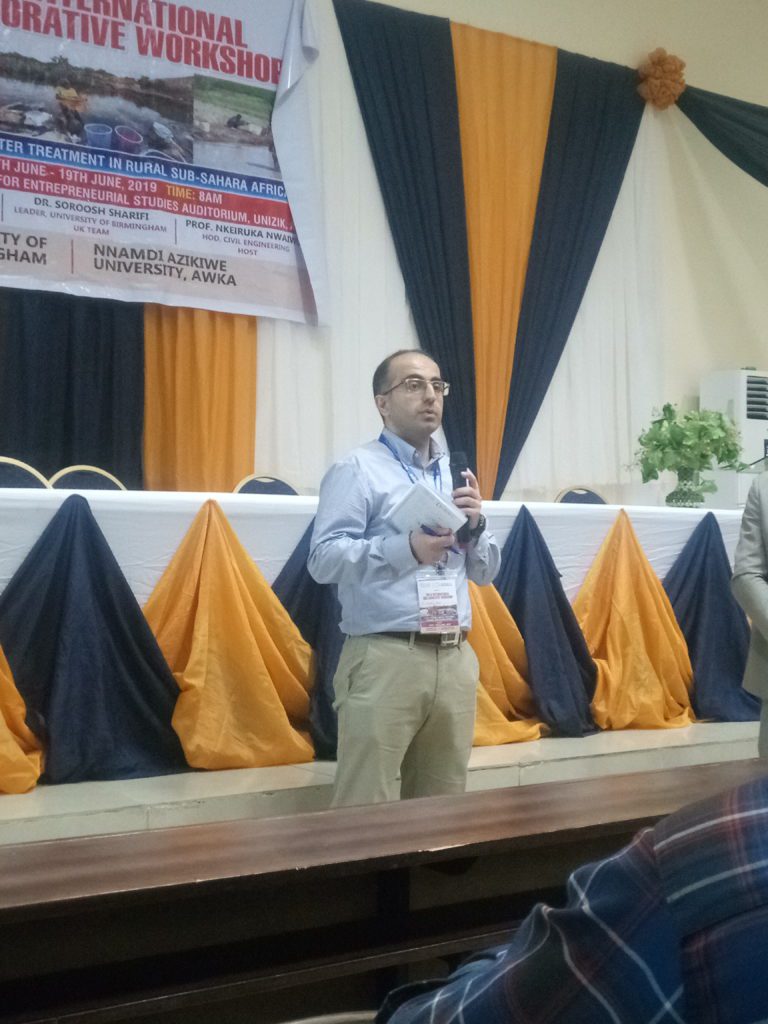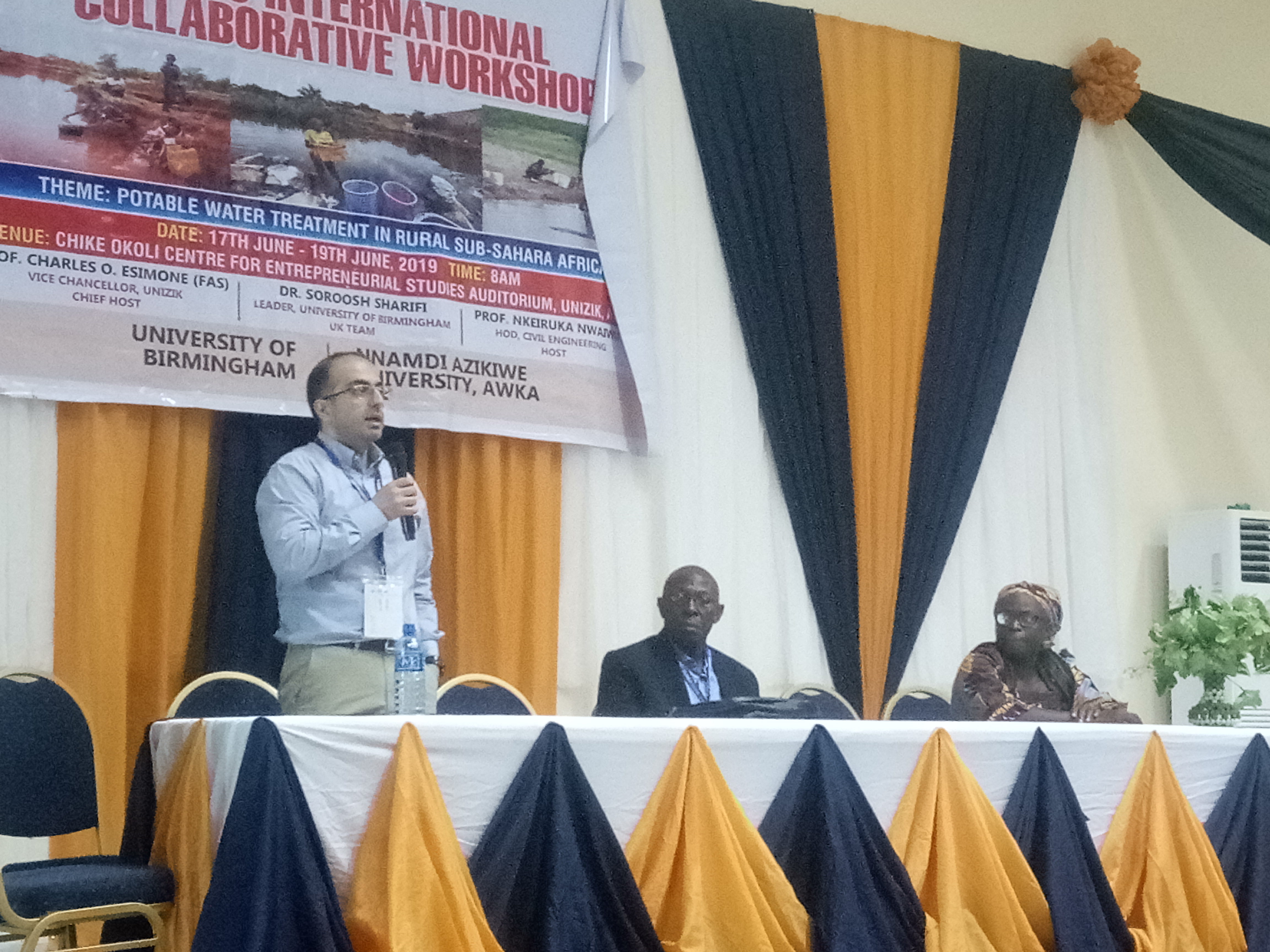University of Birmingham (UoB) in collaboration with Nnamdi Azikwe University, Awka (UNIZIK) has organised an intensive research workshop themed “potable water and waste water treatment in rural sub-saharan Africa.
The 2-day workshop which was a multi-disciplinary event took place in NAU Campus in Awka and had in attendance researchers, academia, public officials, Civil engineers as well as other experts working in the Water Sanitation and Hygiene (WASH) sector, drawn from six geopolitical zones in Nigeria.

According to Dr Soroosh Sharifi, Lecturer in Water Engineering, University of Birmingham, in his keynote address “this 2-day workshop which is geared towards seeking innovative, safer and improved methods in providing treatment for both potable and waste water in the rural as well as suburban communities sub-saharan Africa has been made possible through the support Global Challenges Research Fund and The Institute for Global Innovation”.
“Availability and accessing clean and potable is gradually posing a global challenge with attendant effects on our daily lives which why a collaborative and research workshop as this, is expedient so as to bridge the knowledge gap regarding these imminent challenges facing potable water globally” he remarked.
Professor Harold Godwin, a professor of industrial and Production Engineering, UNIZIK, giving the second keynote address said assessing Potable Water and basic sanitation though may seem a global challenge, it is country specific.
“Nigeria, as a country in the sub Saharan Africa has its own peculiar challenges of availability and accessing potable water as well as basic sanitation and hygiene”
He added that Nigeria being most populous African nation is currently on the number two position, after India as regards basic sanitation challenges particularly Open Defecation which is water related challenge.
Benjamin Okoro, a PhD Candidate, Department of Civil Engineering, UoB, gave presentation on current solutions for water treatment and the potentials of natural coagulants as major alternatives to safer water treatment in the rural sub-saharan Africa.
“These natural coagulants are plants we see and consume as our food yet contain powerful agents that if properly harnessed could be an alternative water and waste water treatment particularly those who live in the rural communities”
“Moringa plants, rice and grain plants amongst others have been tested to contain natural coagulants for water treatment” he said.
The workshop was concluded with a research visit by all the participants to COSCHARIS FARM in Anaku, Anambra State.
